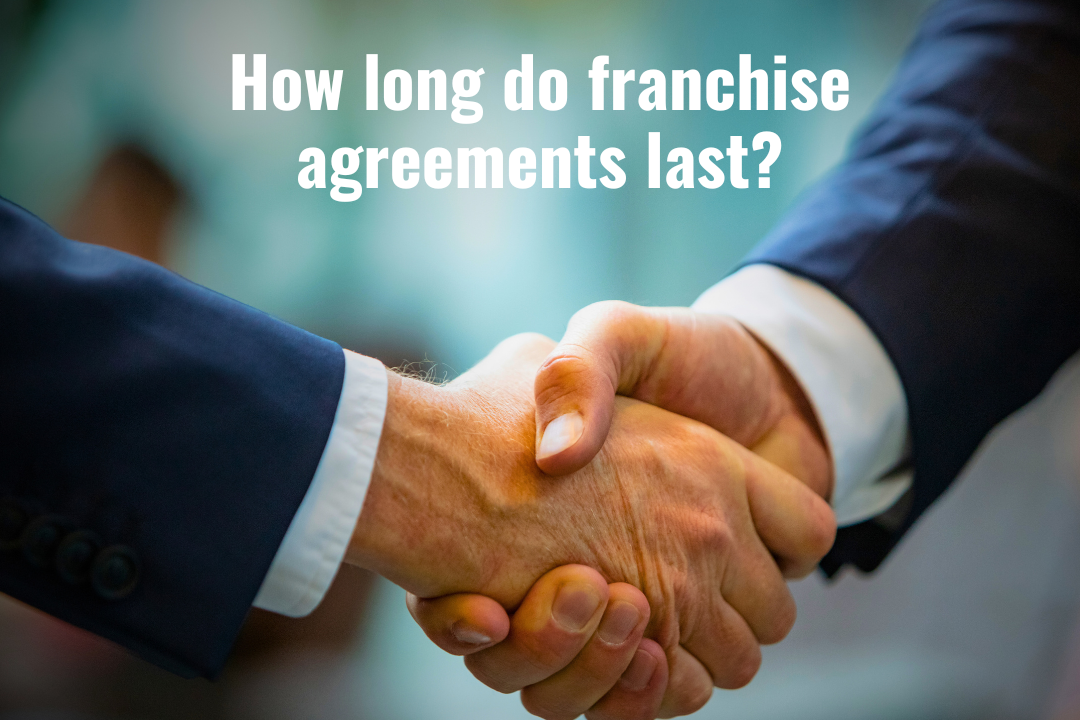Franchise agreements vary in length but typically range from five to twenty years. The duration of a franchise agreement is influenced by various factors, such as the type of business, the industry, and the specific terms outlined in the agreement. For example, fast food franchises often have shorter agreements, usually around ten years, due to the rapidly changing market and evolving consumer preferences. On the other hand, industries like automotive or hospitality may have longer agreements, lasting up to twenty years. It’s essential for both the franchisor and the franchisee to carefully consider the length of the agreement and negotiate terms that align with their business goals and objectives. Ultimately, the length of a franchise agreement should provide enough time for the franchisee to establish a profitable business while allowing the franchisor to protect their brand and ensure compliance with their standards.
The factors that can affect the duration of a franchise agreement
Several factors can influence the duration of a franchise agreement. One crucial factor is the industry in which the franchise operates. Certain sectors, like fast food or technology, may experience rapid changes and evolving consumer preferences. As a result, franchise agreements in these industries tend to have shorter durations, typically around ten years. This allows both the franchisor and franchisee to adapt to market trends and stay competitive.
Another factor that can affect the duration of a franchise agreement is the type of business. Some businesses may require more time to establish a strong presence and build a loyal customer base. For example, businesses in the automotive or hospitality industries often have longer agreements, lasting up to twenty years, to ensure that the franchisee has sufficient time to establish a profitable business.
The specific terms outlined in the franchise agreement can also impact its duration. Franchisors may include provisions for renewing the agreement at the end of the initial period, allowing for further business growth and development.
Ultimately, the duration of a franchise agreement should be carefully considered and negotiated to strike a balance between allowing the franchisee to establish a successful business and protecting the interests of the franchisor.
What happens at the end of a franchise agreement?
At the end of a franchise agreement, several possible outcomes depend on the terms negotiated between the franchisor and franchisee. One possibility is that the agreement will be renewed for another term, allowing the franchisee to continue operating the business under the same brand. This renewal process typically involves a review of the franchisee’s performance and compliance with the franchisor’s standards.
Another possibility is that the agreement will not be renewed due to the franchisee’s decision to exit the business or the franchisor’s decision to terminate the agreement. In this case, the franchisee may have the option to sell the business to another party or liquidate their assets.
Regardless of the outcome, both parties must plan for the franchise agreement’s end well in advance. This may involve transitioning operations, transferring customer relationships, or complying with any post-agreement obligations outlined in the contract. Overall, the end of a franchise agreement marks a significant milestone in the life of a franchise business, and careful planning is key to ensuring a smooth transition for all parties involved.
Summary
Franchise agreements are vital to the franchise business model, allowing businesses to grow over time. The duration of a franchise agreement can vary depending on factors such as the type of business, industry, and specific terms outlined in the agreement. Typically, franchise agreements range from five to twenty years. Fast food franchises tend to have shorter agreements, while industries like automotive or hospitality may have longer ones. Factors affecting the duration include the industry’s changing nature, evolving consumer preferences, and the need for businesses to establish a strong presence and loyal customer base. At the end of a franchise agreement, outcomes can vary, such as renewal or termination. Both franchisors and franchisees must plan for the end of the agreement and ensure a smooth transition. Understanding the factors and considerations involved in the duration of a franchise agreement is crucial for success in the franchising world.

